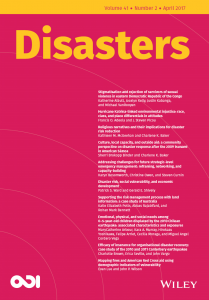Honesty is the best policy in healthcare, but how to make it a reality?
In healthcare, as in all walks of life, things go wrong. However, the consequences of an activity going wrong in healthcare can be a matter of life or death. How a healthcare professional and their employer deals with an error is critical to maintain public trust and ensure that a mistake is not repeated. The tragic events of Mid-Staffordshire Foundation Trust and the Hyponatremia related deaths in Northern Ireland have bought into sharp relief the importance of professionals being open...



















